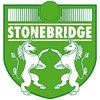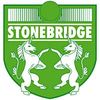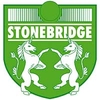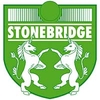-
Home
-
Contributors
-
International
-
Account
-
Information
More From Contributor
Specification for hardware, software & peripherals Compose a business case for the use of IT in business Understand the importance of data security Draw up a housekeeping schedule for managing data & files Evaluate the benefits of using spreadsheets & accounting packages Determine a reporting structure for computerised accounts ...

Teams And Groups (Byte Size Skills Course)
infrequently and which changes from time to time. After participating in this course, you should be able to: describe group processes identify the stages of team development recognise the characteristics and key abilities of effective teams distinguish between effective teams and co-operative groups describe the roles people play in teams recognise the ways of resolving conflict discuss factors which influence meetings positively identify behaviour which helps decision making. In working through this session, you will practise the following BTEC common skills: Managing and Developing Self Working with and Relating to others Communicating Managing Tasks and Solving Problems Applying
Numeracy Applying Technology Applying Design and Creativity
This page now acts as a permanent archive for this product. Add more information using the comments box below to ensure it can still be found by future generations.
Use our search facility to see if it is available from an alternative contributor.
- Availability: Out Of Stock
- Supplier: Stonebridge
- SKU: 531
Product Description
Teams & Groups Course What is the difference between a team & a group? You may be wondering why such an apparently pedantic question is asked. However, the distinction between a team & a group has many implications for organisations &, in particular, the role of the manager, & is therefore worth exploring in some detail. In this course, we shall explore the development of a collection of individuals who are gathered together from different parts of an organisation in order to fulfil the aspirations of senior management in pursuit of business excellence. Everyone at work, whether they be a typist or a managing director, has, at some stage, to work with others in a group. This may be a permanent group (such as a small department) or it may be a group which meets infrequently & which changes from time to time. After participating in this course, you should be able to: describe group processes identify the stages of team development recognise the characteristics & key abilities of effective teams distinguish between effective teams & co-operative groups describe the roles people play in teams recognise the ways of resolving conflict discuss factors which influence meetings positively identify behaviour which helps decision making. In working through this session, you will practise the following BTEC common skills: Managing & Developing Self Working with & Relating to others Communicating Managing Tasks & Solving Problems Applying Numeracy Applying Technology Applying Design & Creativity
Reviews/Comments
Add New
Intelligent Comparison
We couldn't find anything!
Perhaps this product's unique.... Or perhaps we are still looking for comparisons!
Click to bump this page and we'll hurry up.
Price History
We couldn't find any historical pricing!
Vouchers
Do you know a voucher code for this product or supplier? Add it to Insights for others to use.


 United Kingdom
United Kingdom
 France
France
 Germany
Germany
 Netherlands
Netherlands
 Sweden
Sweden
 USA
USA
 Italy
Italy
 Spain
Spain











 Denmark
Denmark